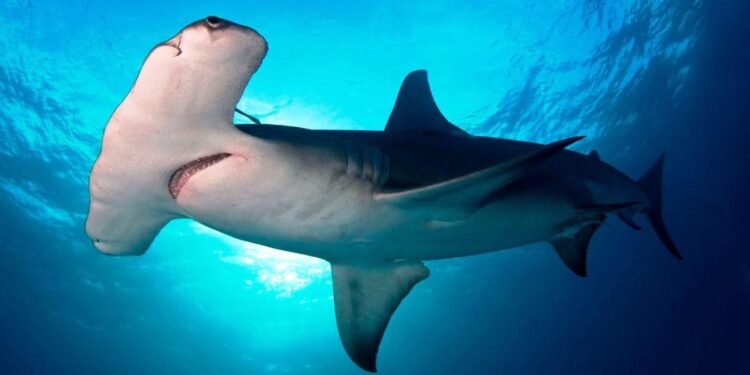Costa Rican judicial authorities have declared three species of hammerhead sharks in danger of extinction in a ruling that warns that these animals are “one step away from extinction.” The ruling of the Constitutional Chamber I orders the National System of Conservation Areas to incorporate the species Sphyrna lewini, Sphyrna mokarran, and Sphyrna zygaena into the list of endangered species.
Two of these hammerhead shark species are already on the International Union for Conservation of Nature (IUCN) Red List of Threatened Species as “critically endangered” and with “declining” populations. The ruling also urges public entities to take the necessary measures to put an end to the capture, retention, commercialization, and landing of these species.
In February, the Costa Rican government had already banned fishing for hammerhead sharks, a species in high demand for its fins in the fin soup industry. Requiem and hammerhead sharks account for more than half of the world’s fin trade, with a major trade center in Hong Kong and an estimated value of $500 million per year. Shark fins can fetch up to US$1,000 per kilogram in East Asian markets.
Shark fin soup is valued in popular culture for its purported health benefits, such as slowing aging, improving appetite, aiding memory, and stimulating sexual desire.
Costa Rica is home to the Golfo Dulce Sanctuary and Cocos Island in the Pacific Ocean, which are important habitats for congregations of hammerhead sharks. These areas are protected and recognized as World Heritage Sites.
At the Convention on International Trade in Endangered Species of Wild Fauna and Flora (CITES) summit held in Panama in late 2022, it was agreed to regulate trade in 54 species of requiem and hammerhead sharks, with some reservations from Japan due to their high demand as an ingredient in fin soup.










